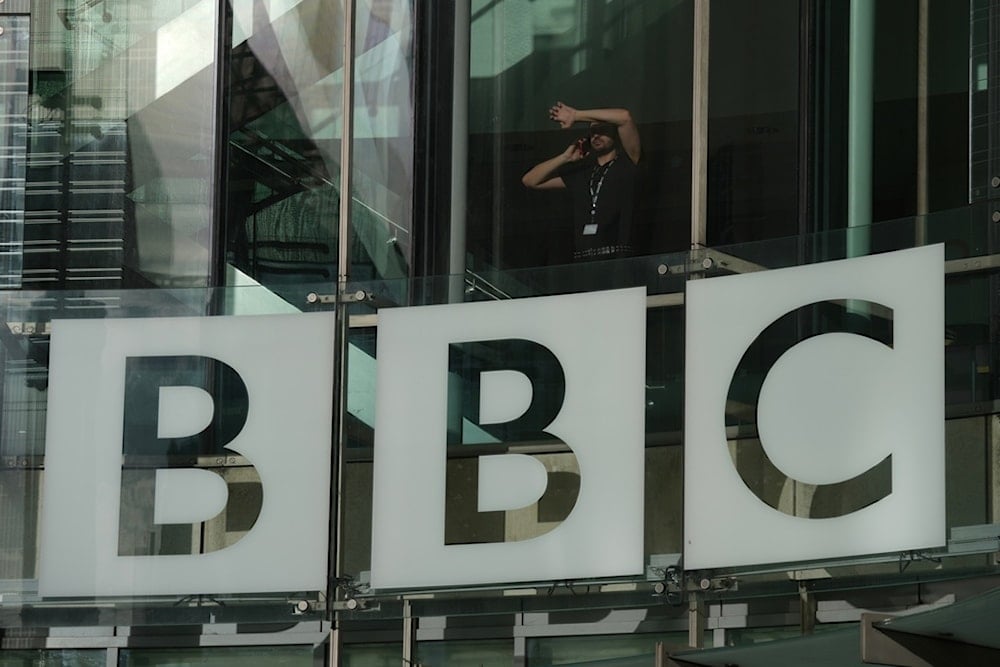BBC board appointees under review after scandal on Trump bias
The UK government will use its upcoming BBC charter review to scrutinize political appointments amid mounting calls for board member Robbie Gibb's removal over concerns that his role undermines the broadcaster’s impartiality.
-

A view of the logo outside the BBC Headquarters in London, Wednesday, Nov. 12, 2025 (AP Photo/Kin Cheung)
Culture Secretary Lisa Nandy says the government’s upcoming BBC charter review will scrutinize the impact of politically connected appointments to the corporation’s board, following growing concerns that such roles have weakened trust in the broadcaster’s neutrality.
Speaking on BBC Radio 4’s Today programme, Nandy was pressed on whether board member Robbie Gibb, a former communications director for Theresa May, had exceeded his responsibilities by involving himself in political matters. She responded that there is “a real concern, which I share, that political appointments to the board of the BBC damaged confidence and trust in the BBC’s impartiality,” adding that the issue will be addressed during the charter review “which sets the terms for the BBC for the next decade, and which this government is about to kick off.”
Pressure on Gibb has intensified in recent days. Staff members and several MPs have urged that he be removed from the board, while departing director general Tim Davie warned against the growing “weaponisation” of accusations directed at the BBC. The creative industries union Bectu, the largest union representing BBC employees, has also advocated for Gibb’s dismissal.
Board Turmoil
In a letter sent to Nandy and BBC board chair Samir Shah, Bectu argued that Gibb’s continued presence had become “a distraction and is untenable.” The union wrote: “It is vital that staff feel that both the government and the BBC board are truly committed to the future of the organisation, its mission, its independence and its values. Given this, we believe that the position of Sir Robbie Gibb on the BBC board has become a distraction and is untenable. We simply do not see how staff can have faith in the BBC’s leadership while a crucial position on the board is filled by someone perceived by many staff and external commentators as sympathetic to, or actively part of, a campaign to undermine the BBC and influence its political impartiality.”
Bectu head Philippa Childs said: “The culture secretary has been very clear in her support for the BBC and its independence. It is time for her to demonstrate that by acting now to ensure the most impartial board possible for the organisation, that means Robbie Gibb has to go. Our members have worked incredibly hard to deliver high quality content at a time of cuts and redundancies. They are critical to the delivery of the BBC’s mission and the government must listen to their concerns regarding Gibb’s suitability, to ensure a BBC fit for the next decade and beyond.”
Gibb Scrutiny
Questions over Gibb’s role surfaced again during an online staff meeting with Davie, where several employees argued that all political appointees should be removed from the board. Gibb joined the corporation in the Boris Johnson era, and he has been linked to accusations contained in a leaked memo by Michael Prescott, a former external adviser to the BBC’s editorial guidelines committee. Prescott, who stepped down from that role in the summer, alleged liberal bias across the organisation, citing issues including trans rights and coverage of Gaza.
Among Prescott’s claims was criticism of an edited Panorama programme on Donald Trump, which combined portions of a speech delivered nearly an hour apart. The altered clip appeared to show Trump telling supporters: “We’re going to walk down to the Capitol and I’ll be there with you, and we fight. We fight like hell.”
Trump Apology
The BBC has since admitted errors in the editing, apologised to Trump, and agreed not to air the programme again. His legal team had demanded a retraction, compensation and an apology, threatening a $1bn lawsuit. While the broadcaster rejected compensation demands, it conceded shortcomings in the broadcast, which aired days before the US election.
Following the escalating dispute, both Gibb and Prescott have been asked to appear before the House of Commons culture, media, and sport committee to address the issues raised.
Read more: BBC apologizes to Trump but rejects his $1bln legal threat

 4 Min Read
4 Min Read









